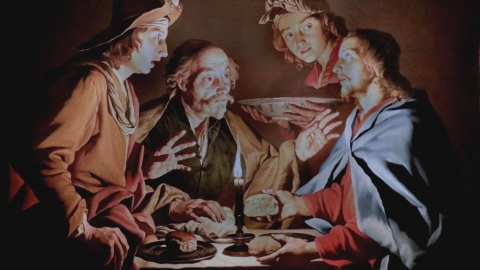Confessions by Smartphone: The Vatican’s “No”

Since the start of the health crisis, Italy has been among the European countries hardest hit by the Covid-19 epidemic, still active in December 2020. It is in this context that a clarification has been issued by the major penitentiary of the Church concerning the possibility or not of receiving certain sacraments via new technologies.
In an interview with the Italian edition of Osservatore Romano on December 5, 2020, Cardinal Piacenza raised the issue of confession using a smartphone, in the legitimate absence of a priest.
“We can confirm the probable invalidity of the absolution imparted through such means,” the high prelate explained. “In fact, the real presence of the penitent is lacking, and there is no real conveyance of the words of absolution; there are only electric vibrations that reproduce the human word.”
The answer is not new, it is based on the fact that the sacrament of penance is exercised per modum judicii – “by mode of judgment” - which requires a real proximity between the priest and the penitent, as must happen in a courtroom between the judge and the accused - there is no absolution in absentia.
In the rest of the interview, the Roman daily asks the major penitentiary if, given the seriousness of the health situation, those who cannot attend Sunday Mass still satisfy the Sunday obligation by listening to its retransmission by radio, or other digital media.
“Nothing can replace attendance at Mass,” replied Cardinal Piacenza, who specifies that “in cases where it is not possible to attend Sunday Mass, the obligation is not fulfilled.” For, in the event of a physical or moral impossibility of going to Sunday Mass, the faithful are no longer bound by the precept, as long as this necessity lasts.
Those who are legitimately barred from attending an obligatory Mass, while watching a digitally broadcast Mass, are “performing a pious and spiritually useful act,” he added.
A common sense response which, while emphasizing the importance of attendance at Mass, contrasts sharply with other discourses that have emerged, sometimes at the top of the Church hierarchy, since the beginning of the pandemic.
Thus, we remember that His Eminence Mario Grech, recently promoted general secretary of the synod of bishops, and created cardinal by Pope Francis on November 28, 2020, did not hesitate to denounce, last October, “a certain spiritual illiteracy” among some Catholics who “feel lost outside the Eucharistic context,” meaning, the Mass.
Strange concept for a prince of the Church who did not fail to react. It makes one wonder if his faith in the Holy Eucharist is clear and affirmed.
Related links
(Sources : Osservatore Romano/Civilta Cattolica – FSSPX.Actualités)
Illustration : IStock / djedzura



